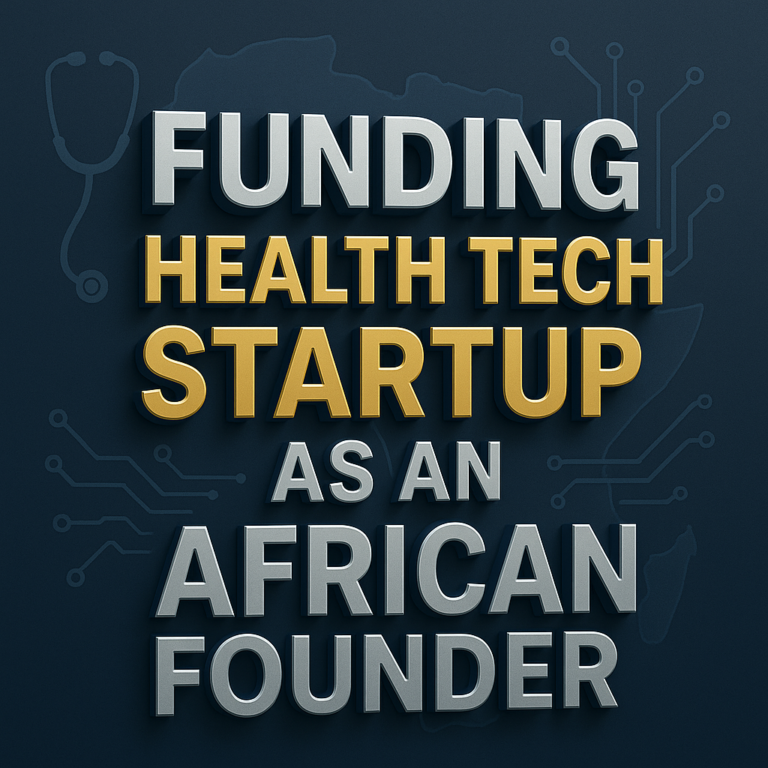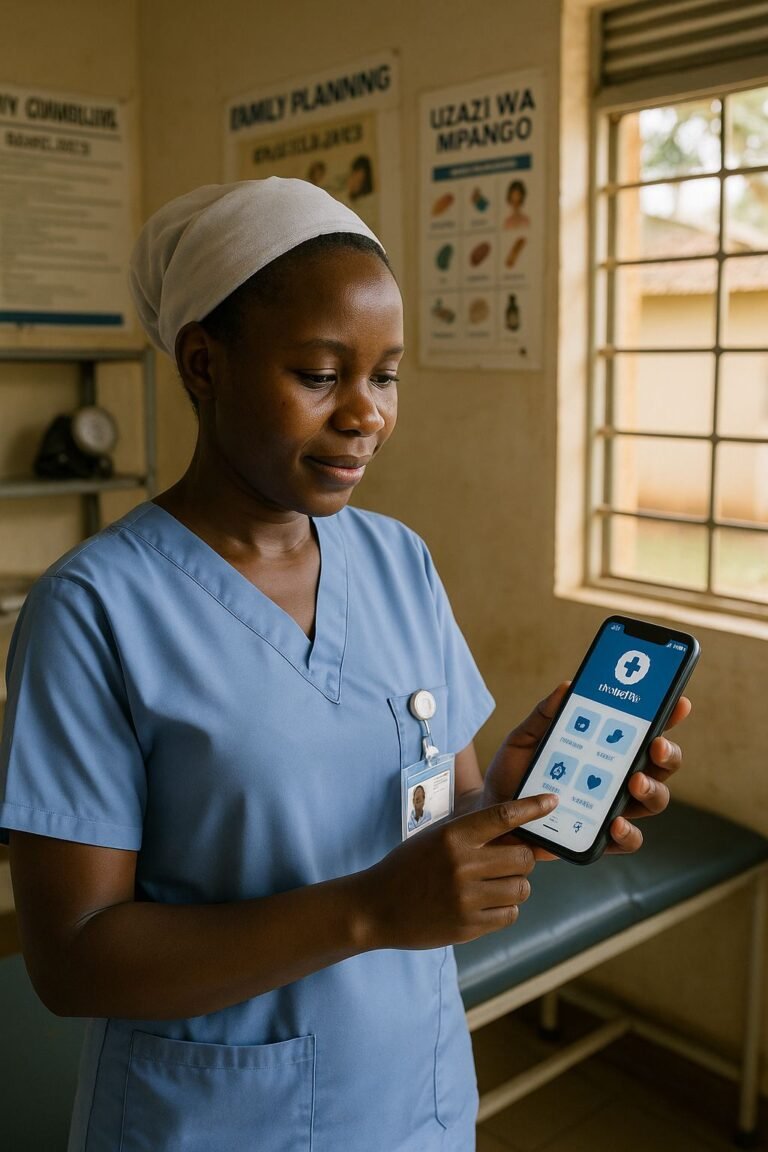Walk into a rural clinic in Kisumu, Kenya, and you might see a solar-powered fridge storing lifesaving vaccines. In Lagos, Nigeria, a woman books a doctor’s appointment using a mobile app, skipping the long queues at public hospitals. In Kigali, Rwanda, drones are delivering blood to remote clinics in minutes instead of hours. These are not dreams. They are the everyday signs of a quiet revolution in which innovation is being used to scale healthcare in Africa.
Why Innovation Matters
Africa has just 3% of the world’s health workers but shoulders 24% of the global disease burden. Many African countries spend less than $50 per person per year on health. Clinics are far apart. Medicines run out. And health workers, often overwhelmed, are spread thin.
The old system of more buildings, staff, and money is important but not enough. Innovation is not a luxury here; it’s a necessity. It allows us to leapfrog outdated systems and design healthcare that fits the realities of African communities. But innovation alone is not the goal. The challenge is scaling those innovations – turning great ideas into everyday solutions for millions.
What Scaling Really Means
To scale in healthcare means going beyond pilot projects and reaching a larger population. It means that a solution works not only in one district or city but across an entire country or region. For this to happen, the innovation has to be affordable, adaptable, and accepted by the people it’s meant to serve. Too often, innovations stay in the lab or in a single “model” clinic and never grow roots in the wider health system. Scaling demands investment, local leadership, and clear evidence of impact.
Now, let’s look at how Africa is doing it beyond just dreaming big but delivering big.
Mobile Health: The Power of the Phone
With over 600 million mobile phone users, Africa is using mobile technology to scale healthcare fast. Take mPharma, which was founded in Ghana. It uses technology to manage pharmacy stock across Africa, reducing the price of medicines significantly. There are no new buildings, just more innovative logistics.
Another is the Hello Doctor in South Africa, which gives people medical advice via text or voice in their local language. It’s not just convenient; it’s lifesaving, especially in areas where clinics are hours away.
Local Solutions, Global Reach
One of the most impressive examples of scaling innovation is Zipline, a drone delivery company. It started in Rwanda, delivering blood and vaccines to remote health centres. Today, it operates in Ghana, Nigeria, Kenya, and beyond, with tens of thousands of deliveries each year.
What made Zipline scale? It wasn’t just the tech. It was government partnerships, integration with national health systems, and local hiring. Innovation scaled when it stopped being a project and became part of policy.
People at the Centre
Innovation is not always high-tech. Sometimes, it’s a new way of working. In Ethiopia, the Health Extension Program trained women in every village to deliver basic care. They became trusted community health workers, bringing services to doorsteps. The result was a significant drop in maternal and child deaths.
It is important to note that scaling healthcare in Africa is not just about apps or AI. It’s about empowering local people, using what’s already in their hands, and respecting the social fabric of communities.
The Role of Policy and Partnerships
For innovation to scale, governments must lead. Policies need to support not only the import of new technology but also the development of homegrown solutions. Public-private partnerships, donor support, and strong civil society involvement all play a role.
During COVID-19, many African countries quickly adopted digital surveillance systems, remote consultations, and mobile payment for health services. The pandemic proved that innovation can be adopted quickly and widely with urgency, coordination, and the right will.
A glimpse into the future
Scaling innovation in healthcare faces real hurdles, from regulatory red tape to a lack of investment in health tech infrastructure. But these are not reasons to stop. There are reasons to innovate better, with more collaboration between tech developers, health workers, and communities.
Innovation is exciting, but it must be appropriate in context, culture, and common sense. Scaling isn’t about making things bigger. It’s about making them fit so that every clinic, every nurse, and every patient benefits. And it starts with one question: not just ‘Is it new?’ but ‘Can it grow?”
Source : The Future of Healthcare





5 Responses
Just signed up on play88! The signup was smooth going to explore the game selection. Hope its all good! Go visit play88.
Yo, just downloaded from goagamesapk. Seems legit, got a bunch of cool mods and older versions I was looking for. Fingers crossed no dodgy stuff, but so far so good! Worth checking out if you’re hunting for those specific APKs.
Alright, gotta say, w999 is pretty smooth. Easy to navigate, even when I’m half asleep after a long shift. Definitely a solid choice for a bit of fun! Check it out yourself! w999
Gave Win15 a try, and it’s decent. Clean website, runs well on phones although nothing special. You should check it out, win15 might be a great site to play at.
New site? new88neu88 has a great offering of new games and promotions. Get in early and make it rain by visiting and discovering new88neu88